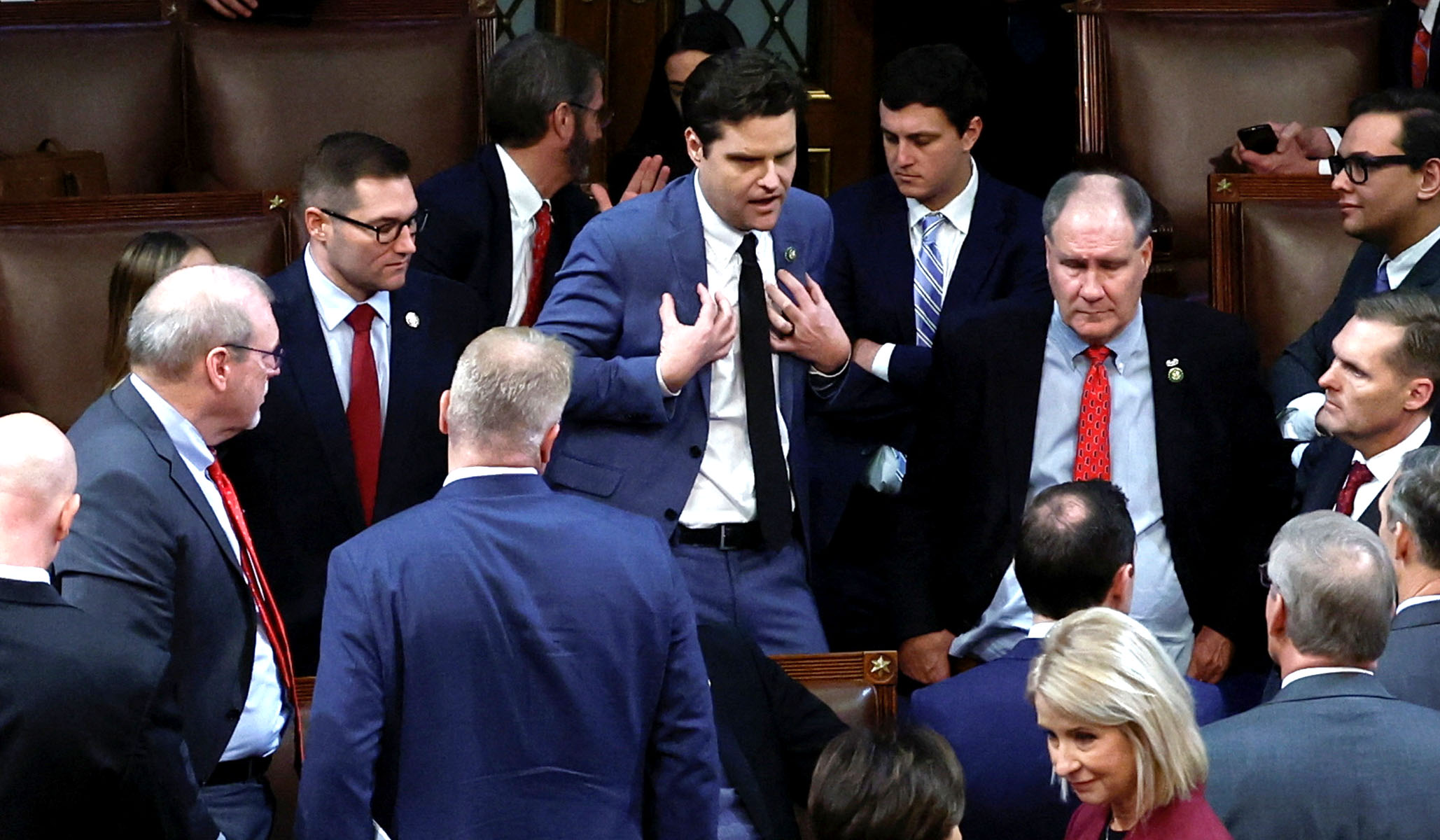


Republican office seekers vying for the nationalist vote have developed a reflexive verbal tic. They have a habit of anointing themselves champions of “the base” and its views, particularly regarding America’s support for Ukraine’s defense against unprovoked Russian aggression. But where you might expect the sentiments of “the base” to be most represented, the long-advertised groundswell of hostility toward support for Ukrainian sovereignty is nowhere to be found.
Last week, amid debates in the GOP-led House over a new National Defense Authorization Act, a variety of anti-Ukraine amendments championed by the Right’s most vocal nationalists died ignominious deaths. One, promoted by Representative Marjorie Taylor Greene, would have struck from the bill $300 million in funding for Ukraine, which would have blocked, among other things, the provision of cluster munitions to the Ukrainian military. It secured the support of just 89 Republican lawmakers out of their 222-member majority and went down to defeat. Another initiative, backed by Representative Matt Gaetz, designed to prohibit all future security assistance for Ukraine failed by an even larger margin, with 149 Republicans voting against it.
It’s not only the nationalist Right’s belief in its own ascendancy that’s complicated by these developments. Prolific MSNBC contributor and producer Steve Benen described the overwhelming pro-Ukraine consensus that emerged in the House as evidence of how far down the rabbit hole the GOP has spelunked. After all, “nearly one-third of the House Republican conference went on the record in support” of these initiatives. Yes, precisely. One-third. The nationalist Right and their progressive opponents are equally wedded to the notion that unpopular isolationist sentiments are on the rise among Republican voters and their elected officials, all evidence to the contrary notwithstanding.
Some Senate Republicans watched the House GOP’s nationalist elements humiliate themselves and apparently decided to get in on the action. In the final vote of the week in the upper chamber of Congress, Senator Mike Lee, in a symbolic move, submitted an amendment allegedly designed to encourage NATO members to augment their defense budgets to at least 2 percent of their respective GDPs. Lee’s amendment would pare back U.S. assistance to Ukraine to just 2 percent of existing commitments in 2024 until and unless the other nations of the 31-member alliance amend their domestic budgets accordingly. The amendment also failed spectacularly. Just 13 senators, all Republicans, supported the measure. Seventy-one members, including a majority of the Republican Senate conference, killed it.
You would think by now that the populist wing of the party, confronted with ample evidence, could see that their policy preferences do not reflect those of a majority of the nation’s representative legislature. The rest of us certainly do. These votes further cement the impression that the anti-Ukraine conference in Congress is a rump. In April, only 19 of the 271 Republicans in Congress signed their names to an otherworldly open letter criticizing the Biden administration for what its authors imagined was the White House’s “unrestrained” aid to Ukraine. And when the sentiments in that letter were put to a vote over the past two weeks, the results confirmed the anti-Ukraine caucus’s location on the fringes of the American political spectrum.
These votes are unlikely to end the ceaseless effort by Ukraine’s populist critics to insist that they alone represent the will of a vast silent majority. That imagined majority’s silence starkly contrasts with the noisiness of their champions in Congress. It is clear by now that the nationalists are overcompensating. The decibel level at which they broadcast their bombast is a coping mechanism — an embarrassing one, at that. Nothing speaks louder than recorded votes.
